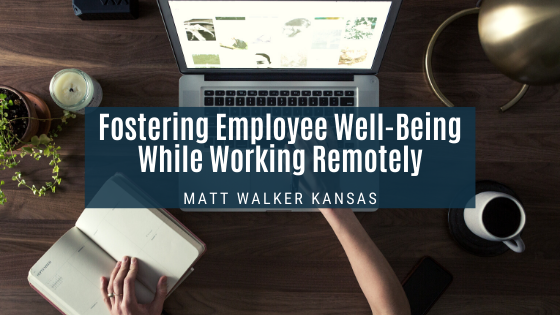The COVID-19 pandemic has posed a unique set of challenges to fostering employee well-being while working remotely. One major source of social interaction in people’s lives is found in the office environment. With many in-office employees now working remotely, this source of interaction and feeling of community has been jeopardized. In the pre-COVID era, those who chose to work remotely did so of their own volition and still were able to connect with others on their own timeline. Now, more people are working remotely due to the threat of contracting coronavirus rather than choosing a more conducive schedule. With this major source of social interaction stripped away, many employers are searching for resources to foster employee well-being and mental health.
The sense of isolation that may be experienced by remote employees can easily be exacerbated by burnout. In working from home, the lines between personal and professional lives may become blurred, with no sense of an “off” button. Previously, once an employee left the office their workday ended. However, with homes becoming offices, there is a lack of distinction between work and personal endeavors. Some employees have children at home who were previously in school, creating a greater chance of burnout due to divided attention and priorities.
However, there are several key things employers can provide their employees to help prevent burnout and feelings of isolation. One key component to fostering employee well-being is to promote a sense of connectedness through utilizing technology. For example, video conferences and team calls can provide social interaction with other employees and a sense of unity.
A second suggestion is for employers to suggest ways for employees to set boundaries, a firm schedule, and definite breaks. Devising a routine that includes breaks helps employees to set boundaries that create a demarcation between professional and personal lives. It provides that “on” and “off” switch that arrives at and leaves the office previously provided.
Finally, access to telemedicine is an important part of fostering employee well-being and mental health. Telemedicine provides employees access to licensed professionals that can discern and help all who may be suffering from anxiety, loneliness, isolation, and depression. With these simple tips, employers can help ensure that their employees receive proper support.

